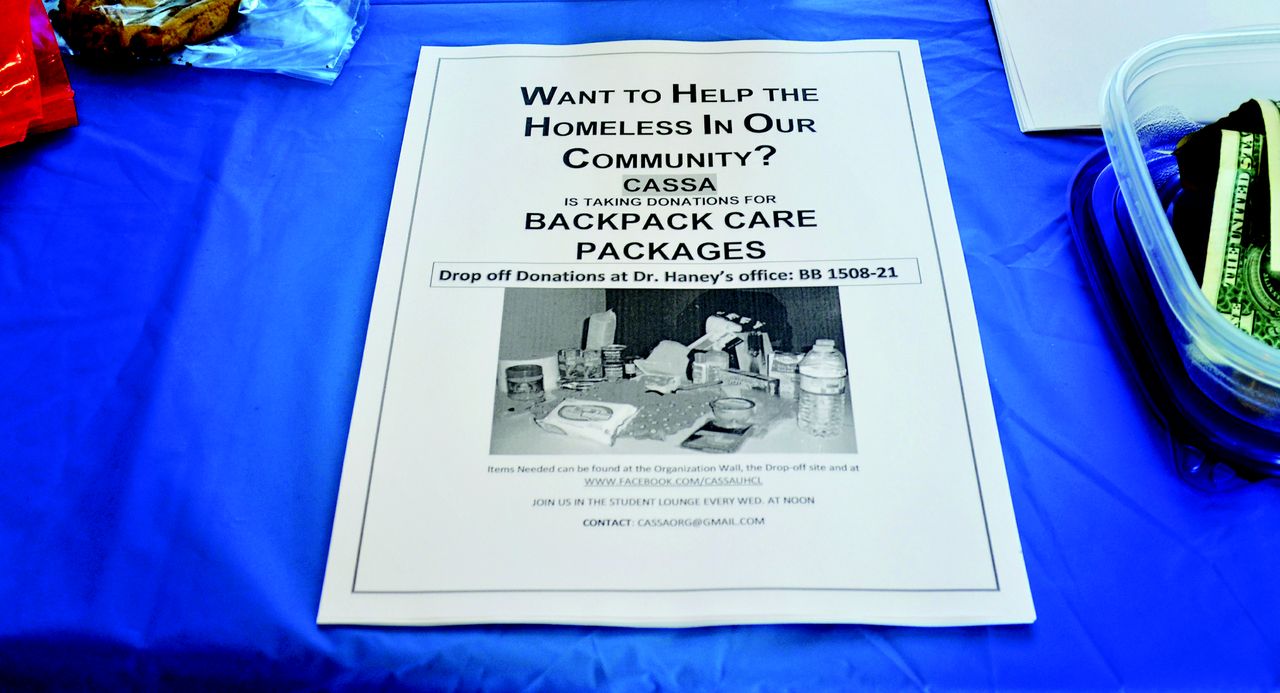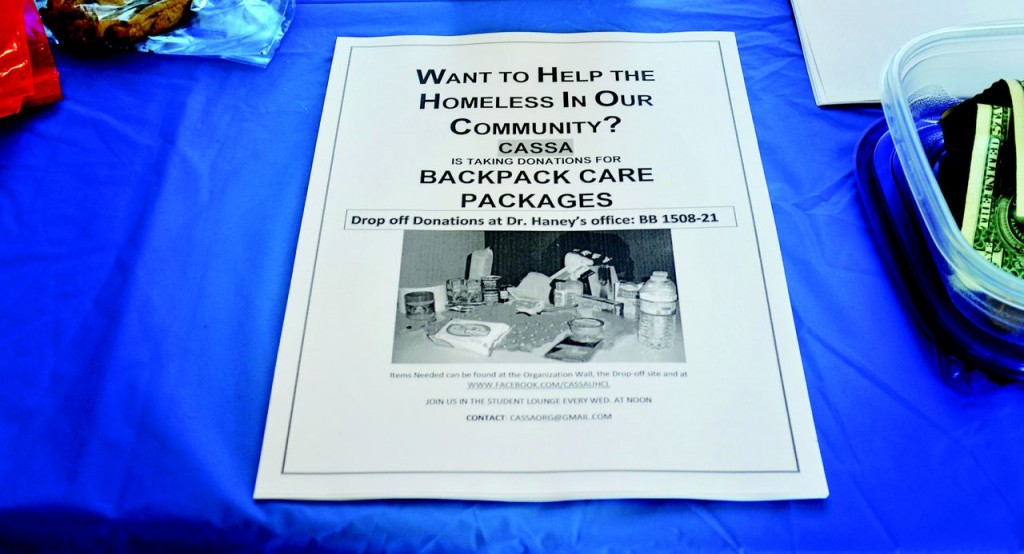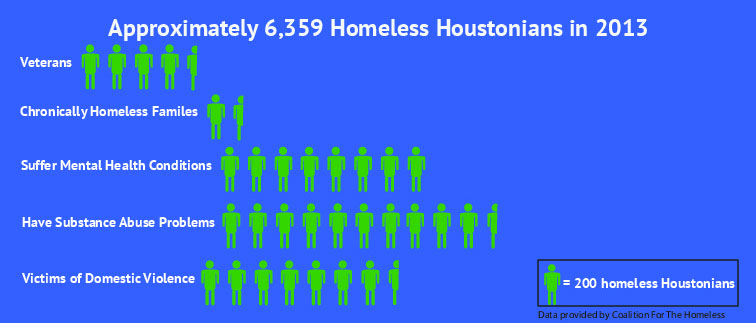
Helping a little amounts to a lot

MARY MILLER
THE SIGNAL
There are dozens of ways to help out those who are without. The Cross-Cultural Anthropology Sociology Student Association (CASSA), along with Women Studies Student Association (WSSA) and UNITY, have teamed up to collect donations to assemble and distribute backpacks full of basic necessities to the homeless in and around Houston.
Liza Wilkins, president of CASSA and anthropology major, hopes to obtain 20 backpacks filled with items. She anticipates getting all 20 backpacks donated as well as the items that will fill them by the end of February.
“We are just asking for items that most of us use every day and take for granted while the homeless go without,” Wilkins said.
The students are collecting items such as socks and shoes, toothbrushes, scarves, blankets, wash cloths, female products and condoms, as well as perishable foods and the other various daily items. The organizations recommend purchasing clothing and bedding items at local thrift stores and garage sales or by looking for gently used items in your home.
Ginnie Sandison, psychology and anthropology major, got the inspiration to start the mission from a YouTube link, https://www.youtube.com/watch?v=2ZpP46NOkEM.
Participation is highly encouraged for all UHCL students and staff. Every Wednesday at noon in the SSCB Student Lounge, the organizations meet to collect and assemble the donated items. There is also a drop-off box outside Professor of Anthropology Charlotte Haney’s office located in the Bayou Building, room 1508-21.
“Homelessness is a growing problem in Houston; it feels rewarding to be a part of this mission,” Haney said.

In 2011, U.S. Department of Housing and Urban Development named Houston a priority community. The Houston Coalition for the Homeless (www.homelesshouston.org) reported the estimated population of homelessness in Houston/Harris County as of Jan. 29, 2013 was 6,359. The average age of a homeless person in Houston is 44.2 years old; 69 percent are males and 30 percent females. Within that percentage of females 5.5 percent are pregnant.
Terry Henry, program director for The Way Station, a program to help feed and clothe people in need operated out of Palmer Memorial Episcopal Church, provides hot breakfasts Monday-Friday for those unable to do so themselves.
“This is the only place in Houston you can get a hot meal Monday-Friday, rain or shine,” Henry said.
The Way Station has two part-time employees; the rest are volunteers. They have been providing meals to the homeless for 23 years, sometimes servicing 300 clients a day. Henry said they could not do it without the help, love and support of the community.
“Ninety percent of the food for the meals comes from the Houston Food Bank, the largest nonprofit food bank in the nation,” said Kim Mivelaz, front desk receptionist at the Houston Food Bank.
The reasons why some people find themselves without a home varies from a case-to-case basis. Scott Arthur, director of public relations for the Star of Hope, a Christian-based organization with the mission to end homelessness by providing food and shelter, said the reasons why Houstonians are homeless is due to either situational or generational conditions.
“Situational is any one of us, just one paycheck away, but when a person is born into poverty and knows no other way than on the streets to live, it is considered generational,” Arthur said. “At the Star of Hope we aim to break that cycle.”
One of the regular servers at The Way Station is, himself, homeless.
“I lost my job a year and half ago and haven’t been able to get back on my feet,” said the man; he lives on the streets of Houston and did not want to release his name. He stated he appreciates all the support and generosity from the community, and he volunteers at The Way Station as a way to give back to the community that is helping him.
Arthur said he has seen people from all walks of life, from the more than 9,000 victims that find themselves homeless in Houston, from lawyers and CEOs of major companies to high school dropouts and domestic violence victims.
The Star of Hope has three separate facilities and has to raise a total of $23 million a year to keep all three facilities running. The money comes from donations from corporations, universities, philanthropists, churches and others who want to give or help those in need.
Donations for the backpack mission are being accepted through the end of the month. Sandison said they decided to team up with Star of Hope and The Mercy Tree.
The Mercy Tree is a Clear Lake-based organization that provides food to the homeless and hungry. Their vision is to provide a safe, comfortable environment in which anyone can sit and enjoy a hot meal. Some may argue collecting 20 backpacks will not go far in helping the more than 6,000 who live on the streets of Houston, but Arthur insists, “every little bit helps.”
